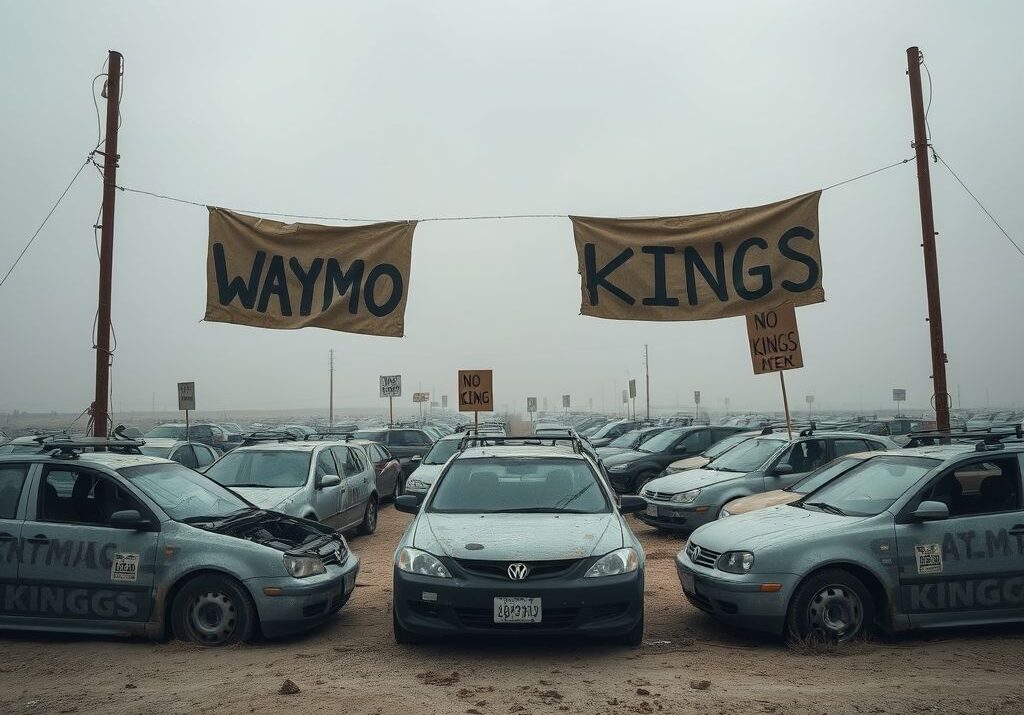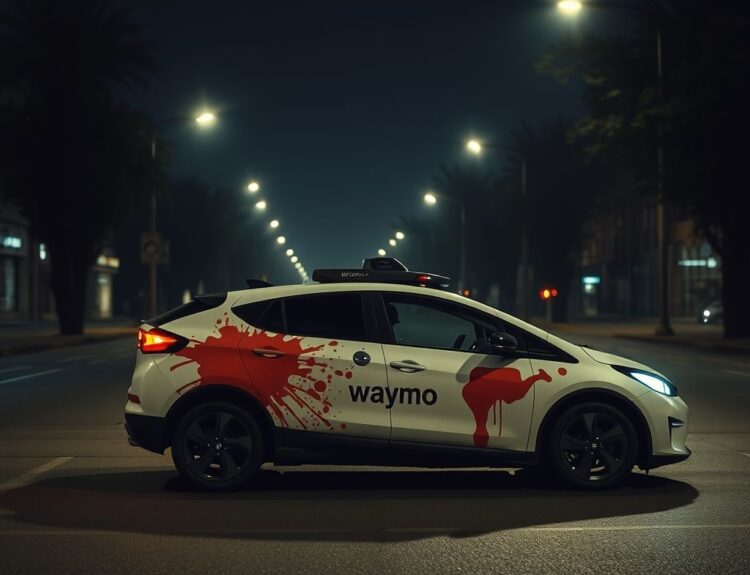Okay, so something interesting caught my eye today. You know how we’re all watching the rise of self-driving cars? Well, Waymo, Alphabet’s robotaxi company, is taking a cautious approach. They’re actually limiting their service today because of the planned nationwide “No Kings” protests. Yep, you read that right. Robotaxis are apparently factoring political demonstrations into their algorithms now.
I stumbled upon this news in a TechCrunch article, and it got me thinking about the intersection of technology, politics, and public safety. It’s not every day you see a self-driving car company proactively scaling back operations due to potential unrest.
Why is this happening? Well, Waymo clearly anticipates potential disruptions or even risks to their vehicles and passengers during the protests. According to data from the Armed Conflict Location & Event Data Project (ACLED), protests in the U.S. have become increasingly frequent and, in some cases, more volatile in recent years. While most protests are peaceful, the possibility of escalation is always there. ACLED data shows a significant rise in the number of protests involving property damage or violence since 2020. This might be influencing Waymo’s risk assessment.
It raises some bigger questions:
- How do autonomous vehicles navigate politically charged environments?
- What role should technology companies play in responding to social movements?
- Does this set a precedent for future automated services in times of civil unrest?
It’s worth remembering that companies have a duty of care to their users. And Waymo is likely prioritising the safety of their riders and the protection of their vehicles.
Here are 5 Takeaways I’m chewing on:
- Autonomous vehicles are now part of the socio-political landscape: They’re not just about getting from point A to point B anymore.
- Companies are factoring in political risk: This could become a standard practice, influencing service availability during protests or major events.
- Safety first, always: Waymo’s decision highlights the importance of prioritizing user safety in potentially volatile situations.
- Expect more of this: As self-driving tech gets rolled out, we’ll see more interaction between it and real-world social events.
- It’s a good reminder that tech exists within a social context: it’s not neutral.
FAQ: Waymo and the “No Kings” Protests
-
What are the “No Kings” protests about?
The “No Kings” protests are nationwide demonstrations against President Donald Trump and his policies. -
Why is Waymo limiting its service during the protests?
Waymo is limiting service to ensure the safety of its passengers and vehicles, given the potential for disruptions during the protests. -
Is this the first time Waymo has limited service due to protests?
While this specific instance is notable, it’s not publicly known if Waymo has done this before. It does set a potential precedent. -
What areas are affected by Waymo’s service limitations?
The specific areas affected would be those where Waymo operates and where the “No Kings” protests are expected to occur. -
How long will the service limitations be in place?
The service limitations will likely be in place for the duration of the protests, possibly longer depending on Waymo’s assessment of the situation. -
How do autonomous vehicles handle unpredictable situations like protests?
Autonomous vehicles rely on sensors and algorithms to navigate their environment. During protests, they may use this information to reroute or avoid congested areas. Companies may proactively limit service if high risk is assessed. -
Does this mean self-driving cars can be “censored” based on political events?
It’s less about censorship and more about safety and risk management. Companies must balance providing service with protecting their users and assets. -
What is ACLED and why is it relevant?
ACLED (Armed Conflict Location & Event Data Project) is a reputable source that collects and analyzes data on conflict and protest events worldwide. It’s relevant because it provides information on the frequency and intensity of protests, helping to understand the potential risks involved. -
Will other autonomous vehicle companies follow Waymo’s lead in similar situations?
It’s possible. Other companies will likely assess the risks and make decisions based on their own safety protocols and risk tolerance. -
How does this affect the future of autonomous vehicle services?
This highlights that autonomous vehicle services are intertwined with social and political events. Companies need to consider these factors when planning and operating their services. This might create limitations in rollouts or deployments.








